Calls for State apology for Stardust families after unlawful killing verdicts
A sister of one of the victims said in the wake of the verdicts: ‘We’ve got truth, we’ve got the justice.’

Relatives of some of the 48 people killed in a fire at a Dublin nightclub in 1981 have called for a State apology after a jury returned a verdict that they were unlawfully killed.
The jury reached a majority verdict of unlawful killing in the case of the 48 people who died in a fire that ripped through the Stardust nightclub in north Dublin.
Families who have fought for justice for their loved ones embraced one another and cried after the jury’s majority verdict was read out in the Pillar Room in Dublin city.
Relatives appeared relieved when the jury foreman told the coroner that they had concluded that carpet tiles on the walls and obstruction of emergency exits were contributory factors to the spread of the fire.
Irish President Michael D Higgins described the unlawful killing verdict as a “vindication of the fight of their relatives”.
He said it was both “a day of vindication and of honour, but also a day of the deepest sadness and regret”.
The victims’ ages ranged from 16 to 27 and they mostly came from the surrounding north Dublin area.
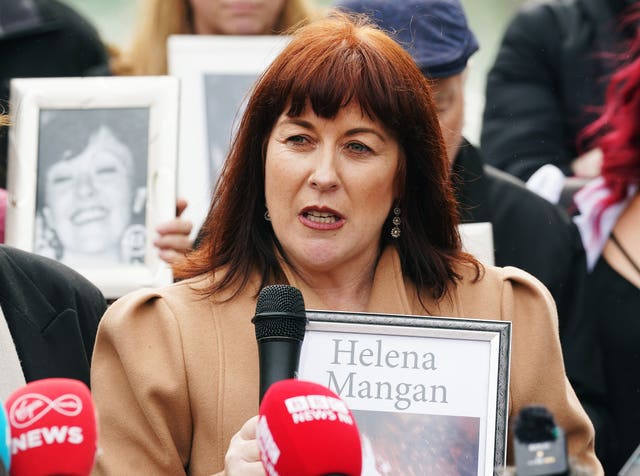
Alison Croker, whose older sister Jacqueline was killed in the Stardust fire, said she felt vindicated that “we’ve got truth, we’ve got the justice”.
She added: “Now I think it’s time that the Irish State actually apologise to each and every one of us for the systematic abuse that we’ve been put through having to relive this ordeal over and over again.”
Maurice Frazer, whose sister Thelma died in the Stardust fire, called for a “meaningful public apology” from the State, describing the inquests into the deaths as a “turning point”.
“For 43 long years we’ve been relentless in a quest for justice for our dear sister Thelma, her boyfriend, Michael, and 46 others.
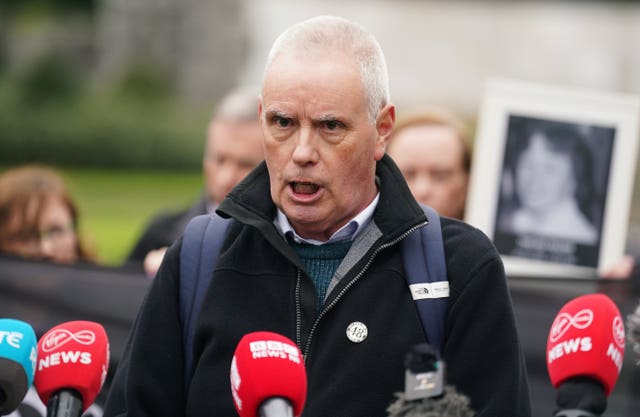
“Throughout this journey, families have endured the unbearable pain of losing parents, siblings and cherished friends, even decades later. For those decades, our hearts and minds have been shattered and the mental toll has been overwhelming and exhausting, persisting day after weary day.
“In 2009 the finding of the Stardust Tribunal 1981 of probable arson was finally removed. That’s 28 years later, 28 years of a loved one’s names smeared with a label of arson.
“This is why we, the families, need a meaningful public apology from the Irish State. Today marks a turning point, a step towards closure, healing, towards a future where justice prevails.”
Antoinette Keegan, whose two sisters Mary and Martina died in the blaze, and who survived the fire herself, said it was an “overwhelming day”.
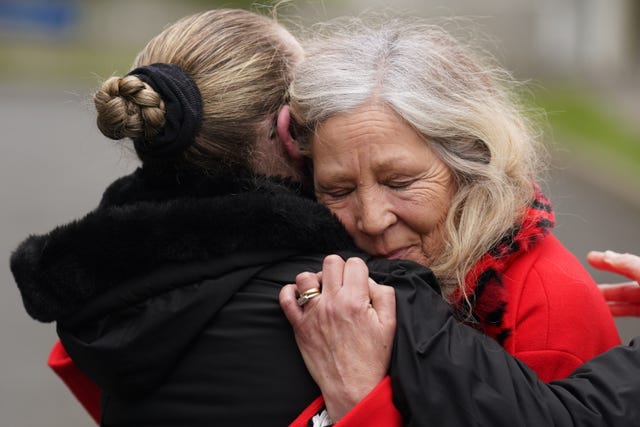
In majority of the cases, the medical causes of death were recorded as due to inhalation of fire fumes and heat.
The jury was unable to determine when the blaze started but said it was first seen outside the building between 1.20am and 1.40am on Valentine’s Day in 1981, and was first seen inside the ballroom between 1.35am and 1.40am.
The jury determined that polyurethane foam within seating, the height of the ceiling in a west alcove of the building and carpet tiles on the walls were contributory factors to the spread of the fire.
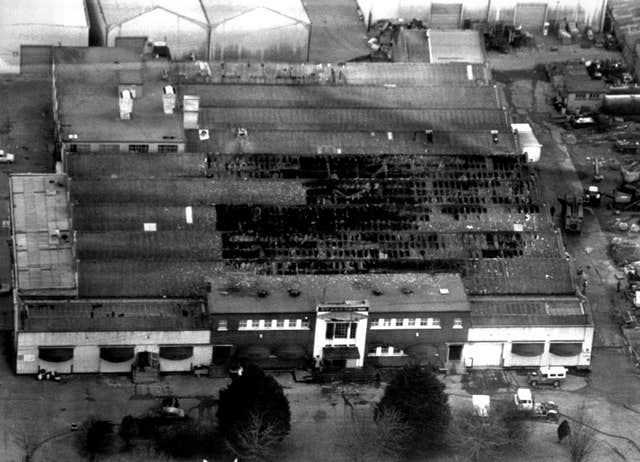
The jury said the lack of visibility due to black smoke, a lack of knowledge of the layout of the building, toxicity of the smoke and/or gases, the heat of the fire, failures of the emergency lighting system, lack of staff preparedness, and the speed of the spread of the fire were factors that impeded exit.
Asked if any of the deceased were impeded in their ability to exit due to locked, chained or otherwise obstructed exits, the jury said: “Yes.”
Asked if this was a contributory factor in any of the deaths, the jury also said: “Yes.”
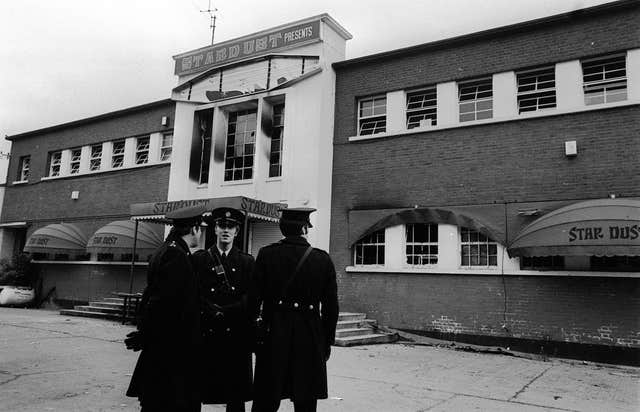
Coroner Dr Myra Cullinane told the jurors “the passing of years hasn’t diminished the horror of some of the evidence that you have heard”, before families applauded them.
Solicitor Darragh Mackin of Phoenix Law, who represents many of the families of the victims of the Stardust fire, said “the record has forever been corrected”.
He said that the coroner had “restored (the victims’) identity, she restored their humanity and most importantly, she restored their faith in the rule of law”.
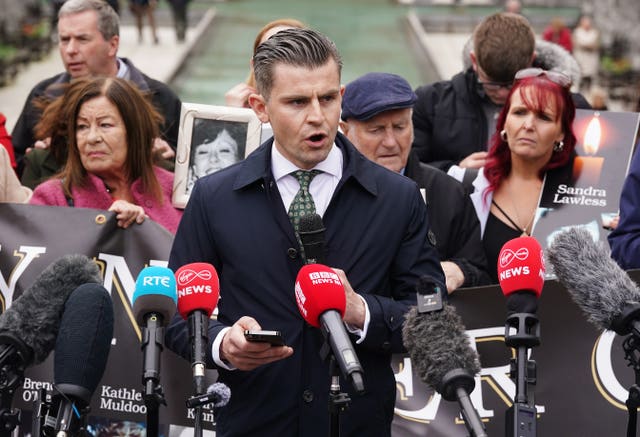
“As Taoiseach, I want to thank them,” he said, adding that the Minister for Justice and Attorney General would consider the inquests outcome in full.
Irish justice minister Helen McEntee has said Cabinet will discuss the possibility of a State apology for the Stardust relatives following legal advice and consultation with the affected families.
She said she is personally “sorry” that it took so long for families of those killed in the fire to get a verdict from an inquest.
Asked about calls from some of the families for a formal State apology, Ms McEntee said it had to be discussed at Cabinet.
Speaking on RTE Radio one, she said: “I certainly think we need to look at what that might or how that might look.”
Ms McEntee said, following legal advice, Government or the families may ask gardai to review their investigation to see if further steps or charges should be taken following the verdict.
She added: “What’s most important is what the families want.”
Directed by Ireland’s then-attorney general Seamus Woulfe in 2019, the inquests are the longest ever held in Ireland, with proceedings commencing last April.
The original inquests in 1982 lasted five days and were confined to recording the medical cause of the deaths and did not examine the circumstances of the fire in detail.





